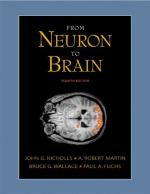|
This section contains 146 words (approx. 1 page at 300 words per page) |
This term is used to describe drugs that act as central nervous system (CNS) stimulants. Such drugs generally are appetite suppressants, decrease sleep and fatigue, increase energy and activity, and at higher doses can cause convulsions and death.
Ingestion typically results in increased wakefulness and a decreased sense of fatigue, increased speech and motor activity, alertness, and, frequently, elevation of mood. Many of the drugs in this class have a potential for abuse, with reports of euphoria at higher doses. Although users often report improved performance on physical and mental tasks, this is rarely the case, but they do restore performance that has been impaired by fatigue.
Prolonged use of most of these drugs can result in tolerance to many of their effects. Repeated high doses can result in distorted perception and overt psychotic behavior.
See Also
|
This section contains 146 words (approx. 1 page at 300 words per page) |


